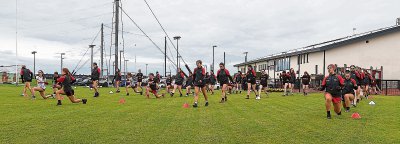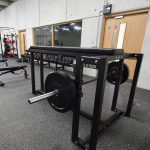THE off-season brings a welcome rest from the demands of a long competitive season in GAA. It’s a time to recover from a tough and long season, allow the body and mind to recover and generally enjoy some time off. The GAA season is arguably one of the most demanding sports in the world with limited recovery times and the amateur status of the players (work, train and play).
Of course, at the end of the season, you should take a break from training but try to limit yourself to just three or four weeks off.
Don’t be completely idle during that time otherwise getting back into routine will be much harder than it needs to be. Instead, have one week of very passive rest during which you do as little physical activity as possible, and then enjoy some active recovery for the next three weeks.
Hike, swim, jog, do some lightweight training and just keep your body moving and mentally recover from a tough season during this well-earned break. I always advise the athletes I coach in this initial downtime period to enjoy activities that refresh and reenergise them.
The off-season itself is all about GPP – general physical preparedness.
During this time, your training should be non-GAA specific and an opportunity to prepare your body physically for pre-season training.
Four key areas to consider during your off-season period:
Rehab and prehab: Those niggling injuries you incurred during the season? It’s time to get assessed by a sports physio and see what’s going on? Upon assessment, you should begin a prehab programme designed for you to work on these problem areas. It’s important that this prehab program is followed throughout the year.
Aerobic fitness: Maintaining and developing your aerobic energy system is key. Hike, swim, off-feet conditioning. Be as active as you can and maintain/develop your aerobic base.
Basic strength: Develop a solid base of full-body functional strength upon which you can develop more advanced strength qualities.
Functional hypertrophy: Increasing your physical size (If needed) and forage some body armour to help develop and protect you in the season ahead.
Your pre-season training period should help you develop your energy systems towards match-fitness. But, unless you have done your off-season ‘homework’, you are going to suffer in the process.
Pre-season training typically lasts eight to 10 weeks and the off-season can last anywhere from six to 10 weeks.
This simple guide below will help you plan and structure your training plan during the different phases:
OFF-SEASON
Phase: GPP; Speed: Acceleration, deceleration; Power: Strength speed; Strength: General, hypertrophy; Energy: Off feet, be active, long interval training.
PRE-SEASON
Phase: SPP1; Speed: Max v build-ups, acceleration, deceleration; Power: Speed strength; Strength: Max strength, hypertrophy; Energy: Game-based training, short interval training, long interval training.
COMPETITIVE SEASON
Phase: SPP2; Speed: Micro dose, Max v, acceleration; Power: Power quality maintenance; Strength: Strength quality maintenance; Game-based training, short interval training, long interval training; Energy: Competitive games, recovery, game-based training, isolated running top-ups.
Check out our analysis and reaction from Errigal Ciaran’s win over Kilcoo.
Receive quality journalism wherever you are, on any device. Keep up to date from the comfort of your own home with a digital subscription.
Any time | Any place | Anywhere














